How ex-Daesh and al-Qaeda leader al-Jolani became West’s blue-eyed boy in Syria
By Alireza Akbari
Only a day after West-backed militant groups led by Hay’at Tahrir al-Sham (HTS) took control of Damascus, ending Bashar al-Assad's long reign, HTS leader Abu Muhammad al-Jolani stood triumphantly on a hill overlooking the Syrian capital.
Wearing army fatigue, Ahmed al-Sharaa, popularly known as Jolani, looked on as plumes of smoke billowed into the sky—a grim spectacle of destruction wrought by Israeli bombings following the ouster of Assad's democratically-elected government in Damascus.
The haunting scene evoked an eerie parallel to Emperor Nero, who infamously watched Rome burn while playing his lyre—portraying an image of power and apathy.
As the Israeli regime grabbed more Syrian land beyond the occupied Golan Heights and launched unprecedented airstrikes on Damascus, HTS militants gleefully roamed the streets, celebrating the "conquest," and unleashed a brutal campaign of throat-slitting and terrorizing minorities.
The tumultuous events that eventually led to the overthrow of the Assad government began on November 27, when videos surfaced of militant groups in Aleppo making rapid advances.
These groups swiftly and dramatically escalated their advances, capturing strategic military bases in Idlib and Hama before marching toward the capital Damascus.
On December 8, they delivered a televised address from Damascus, declaring the end of Assad’s 24-year reign—a seismic shift in the region’s power dynamics with all eyes on Jolani as the leader.
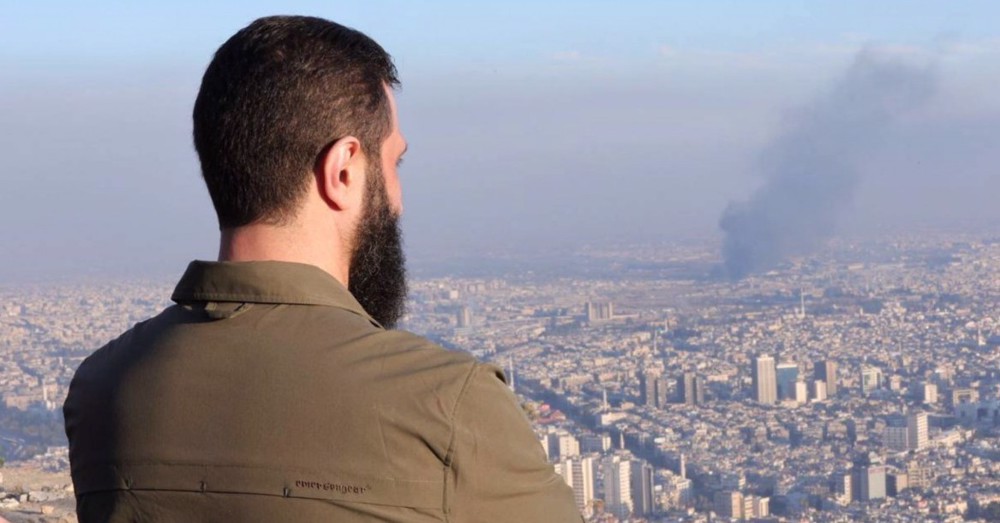
Who is al-Jolani?
Abu Muhammad al-Jolani was born in Riyadh, Saudi Arabia, in 1982 to a Syrian family originally from the occupied Golan Heights of Syria, which has been under Israeli occupation for years.
His family returned to Syria in 1989, settling in Damascus's affluent Mezzeh district. Jolani pursued media studies in Damascus before relocating to Iraq in 2003, just prior to the US invasion.
In Iraq, he joined the al-Qaeda terrorist group and became a key figure in the group.
He was captured by American forces in 2006 and spent five years imprisoned at Camp Bucca before being released in 2011. After that, he moved back to Syria and gained prominence as a militant leader.
Jolani’s journey through the ranks of Takfiri terrorist groups was spectacular as he became a close aide to top al-Qaeda leaders including Osama bin Laden and Ayman al-Zawahiri.
After his release from Camp Bucca in 2011, where he forged connections with future Daesh leaders, Jolani emerged as a key figure in the global Takfiri terrorist movement.
He initially served as a Daesh commander in Iraq’s Nineveh and Mosul provinces before being handpicked by Daesh chief Abu Bakr al-Baghdadi in 2012 to establish a Syrian affiliate at the outset of the West-backed militancy against the Assad government in the Arab country.
HTS leader Abu Mohammad al-Jolani entered the Umayyad Mosque in Damascus.
— PressTV Extra (@PresstvExtra) December 8, 2024
Follow Press TV on Telegram: https://t.co/0EMmcJsEtj pic.twitter.com/cxGDRNKtwi
Jolani founded the Nusra Front as Daesh's Syrian offshoot, leveraging the chaos to advance his agenda. However, a power struggle with al-Baghdadi over control of the group led to a split in 2013.
Jolani severed ties with Daesh and fortified his influence in Syria’s Idlib governorate, aligning the Nusra Front with al-Qaeda to retain the loyalty of hardline elements within his ranks.
While the split signaled a shift in allegiance, according to experts, it was less about ideology and more a personal rift. Jolani continued to espouse the Salafi ideology but sought to differentiate himself through a political veneer, setting him apart from figures like al-Zarqawi and al-Baghdadi.
Terror designation
The US State Department designated Jolani as a Specially Designated Global Terrorist in May 2013. By 2017, he was among the most wanted terrorists globally, with a $10 million bounty by the US government for information leading to his capture.
In an audio statement on September 28, 2014, Jolani declared his intent to fight the United States and its allies, urging his forces to reject Western assistance in their battle against Daesh.
Yet, just two years later, in July 2016, Jolani broke his pledge of allegiance to al-Qaeda leader al-Zawahiri, aiming to rebrand his militant organization and broaden its alliances.
This strategic pivot marked a shift in Jolani’s focus—from global ambitions to governance in Syria.
Following the establishment of the HTS militant group in 2017, the group took control of large swathes of Idlib, where they established a rudimentary governing structure.
HTS leader Abu Mohammad al-Jolani arrives in Damascus
— PressTV Extra (@PresstvExtra) December 8, 2024
Follow Press TV on Telegram: https://t.co/0EMmcJsEtj pic.twitter.com/hPCii8ZXmQ
HTS began collecting taxes and issuing identity cards to locals. However, these efforts were marred by authoritarian practices, including the suppression of dissent and the arrest of political opponents.
Despite Jolani’s public commitment to protecting minorities, his group adopted high-handed measures against religious and ethnic minorities, especially those who spoke about discrimination.
While HTS made rapid strides in consolidating power in the region bordering Turkey, its track record of human rights abuses in Idlib continued to be an area of concern.
The group has been known for systematically silencing dissent, targeting rivals, and using disproportionate force against those who opposed his authoritarian practices.
Concerns have also grown over the presence of foreign mercenaries in HTS, particularly those in its elite Red Brigades, which include members from Central Asia, Chechnya, and France.
Bigger political aspirations
Despite his Takfiri-militant roots, Jolani’s bigger political aspirations kept him in the news for years, as he continued to harbor ambitions of capturing Damascus from his hideouts in Idlib, financially and militarily backed by the United States, the Israeli regime and some regional countries.
Now, with HTS and its allies controlling significant territory in Syria, questions loom over how they will govern the country. Around 100,000 Syrians have already gathered on the border to enter Lebanon, according to reports, desperate to leave their home country.
Fears persist about the treatment of minorities, dissidents, and women under their rule, as many Syrians and the international community remain wary of Jolani’s true intentions.
✍️ Editorial: West-engineered fall of Syrian govt. won’t alter equations of resistance axis https://t.co/rjAkULBRxO pic.twitter.com/qi32SDGOLv
— Press TV 🔻 (@PressTV) December 9, 2024
Despite growing concerns over HTS rule, fueled by viral videos showing the group’s violent tactics, both the UK and the US are reportedly reconsidering its designation as a terrorist organization.
The British government is actively weighing the removal of HTS from its list of designated terrorist groups, particularly in light of the group’s pivotal role in the fall of the Assad government.
UK government minister Pat McFadden has suggested that such a move could be "relatively swift," given the rapidly changing dynamics in Syria.
Similarly, US officials are debating the merits of removing the $10 million bounty on Jolani.
After years of lobbying for delisting, HTS appears to have gained traction with Western powers, particularly following its instrumental role in Assad’s ousting, a goal it shared with Western powers.
For years, the US and its Western allies had tried to dislodge the Assad government, using transnational mercenary forces as well as terrorist groups without much luck.
Jolani finally accomplished what his Western backers couldn't for years despite massive efforts.
In his first detailed interview on Saturday, he emphasized engagement with Western nations and confirmed that the channels of communication with Western embassies, including talks with the British government to restore its diplomatic representation in Damascus, are underway.
He once again asserted that his regime has no intention of engaging in a conflict with the Israeli regime, despite Benjamin Netanyahu decimating the Arab country's military muscle in a few days.
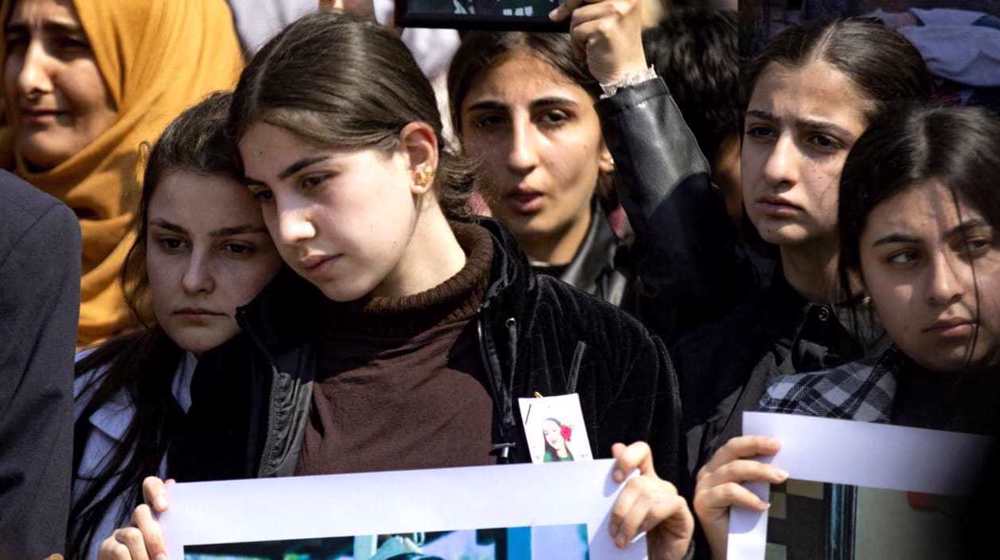
Syrian militants enslaving Alawite women in Idlib governorate: Report
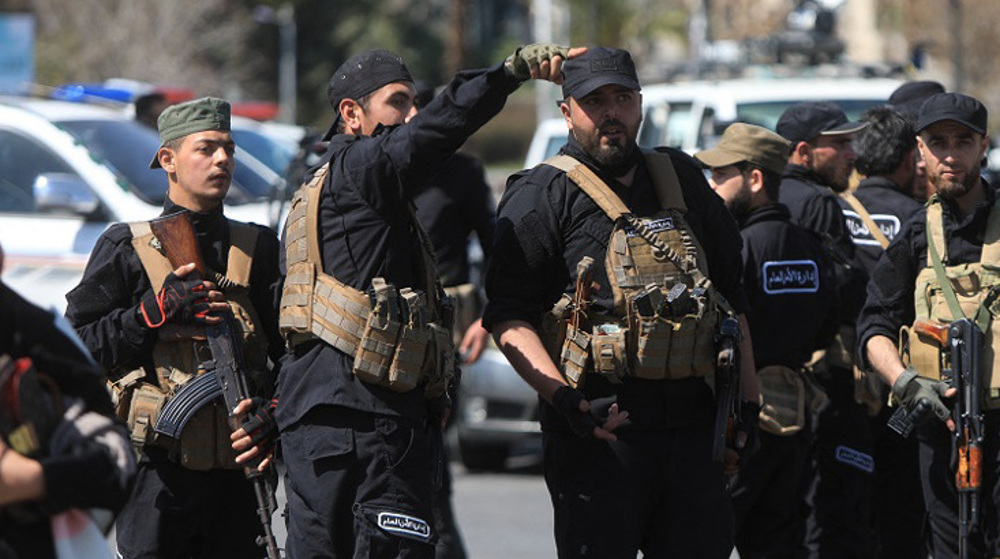
Syria's HTS arrests PIJ officials after US ties sanctions relief to ban on Palestinian groups
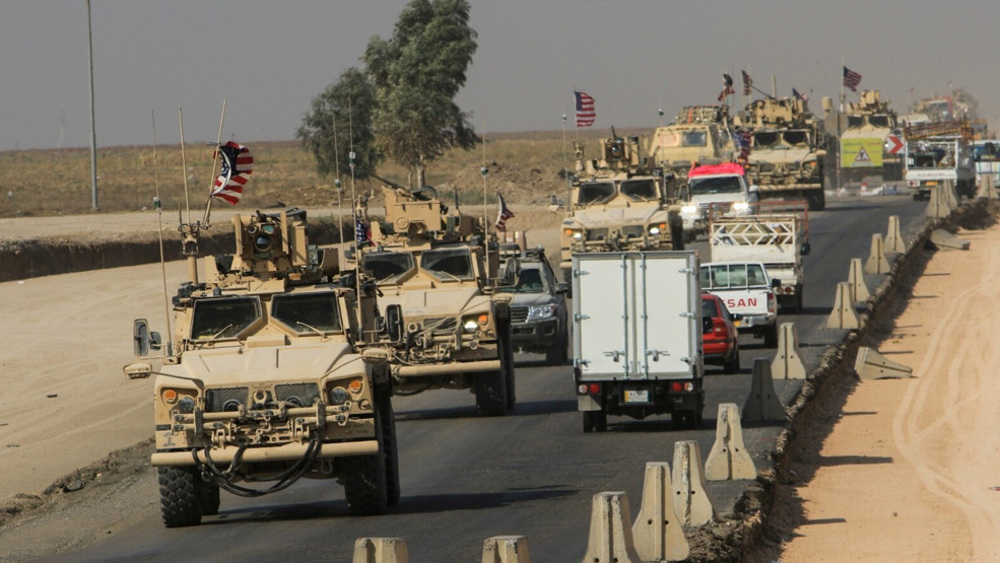
US arms convoys enter Iraqi Ain al-Asad base from Syria: Report
VIDEO | Araghchi arrives in Oman for US talks as Iran says termination of inhumane sanctions ‘priority’
VIDEO | Iran transforms Qeshm Island into Persian Gulf bunkering hub
Norway establishes diplomatic ties with State of Palestine amid Israel's Gaza genocide
‘Foremost priority’: Iran says ‘ready’ to forge greater understanding between Pakistan, India
Ukraine may have to 'give up land' to Russia to secure peace: Kiev mayor
VIDEO | UN blasts Israeli settler deadly violence as settlers storm West Bank town, desecrate shrines
Lebanese parliament speaker rejects disarmament of Hezbollah amid Israeli aggression
China supports Iran’s peaceful nuclear program, diplomatic engagement: Envoy


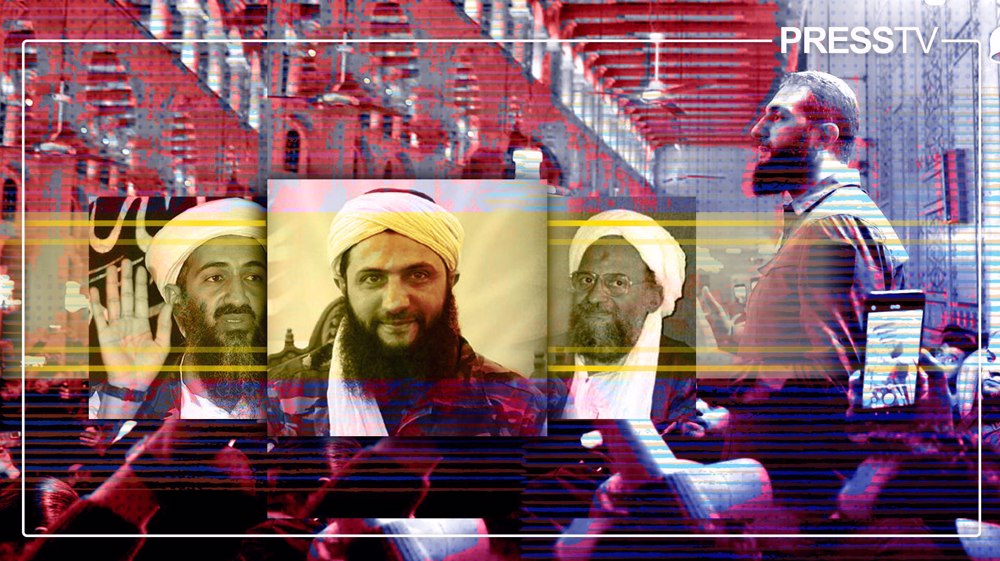



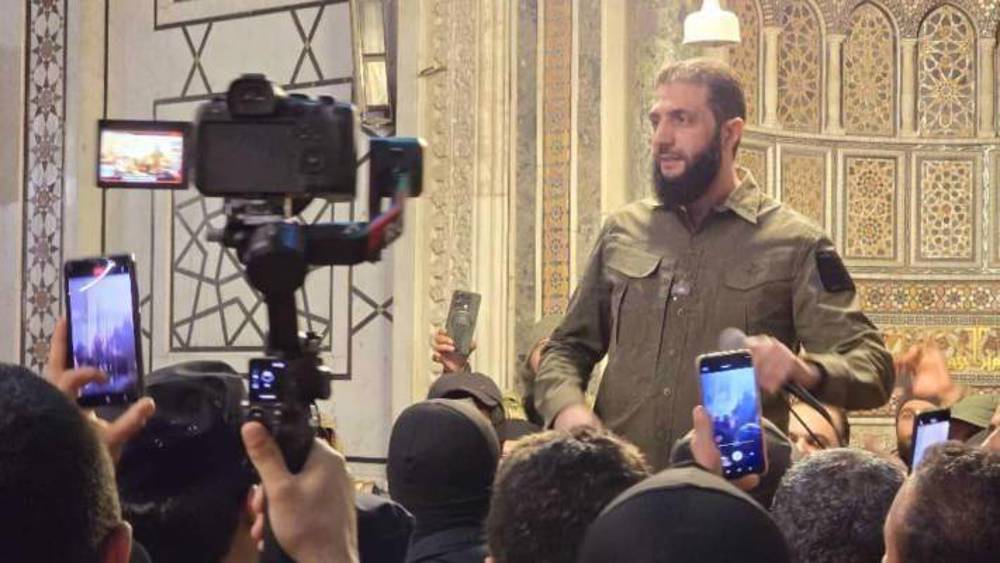



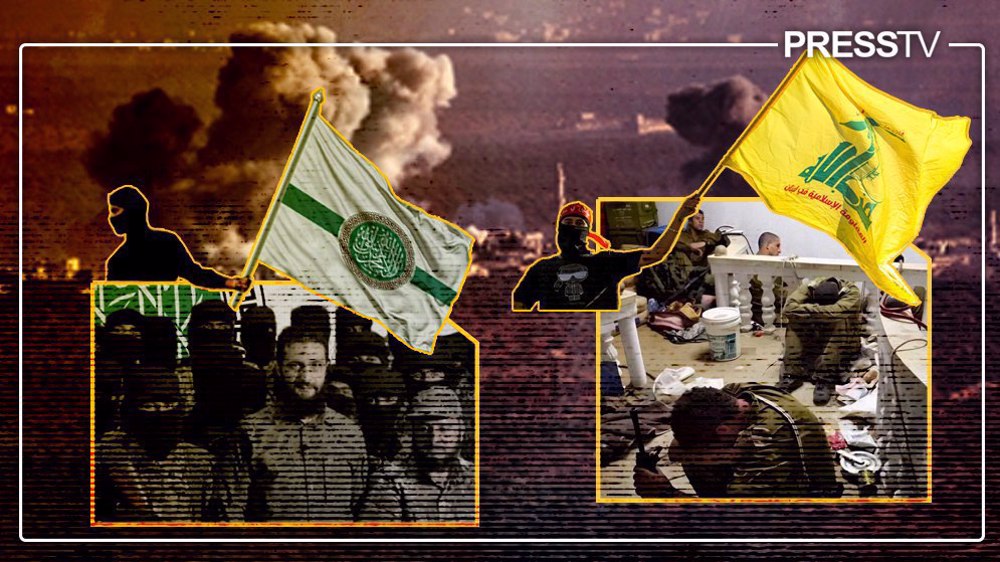

 This makes it easy to access the Press TV website
This makes it easy to access the Press TV website